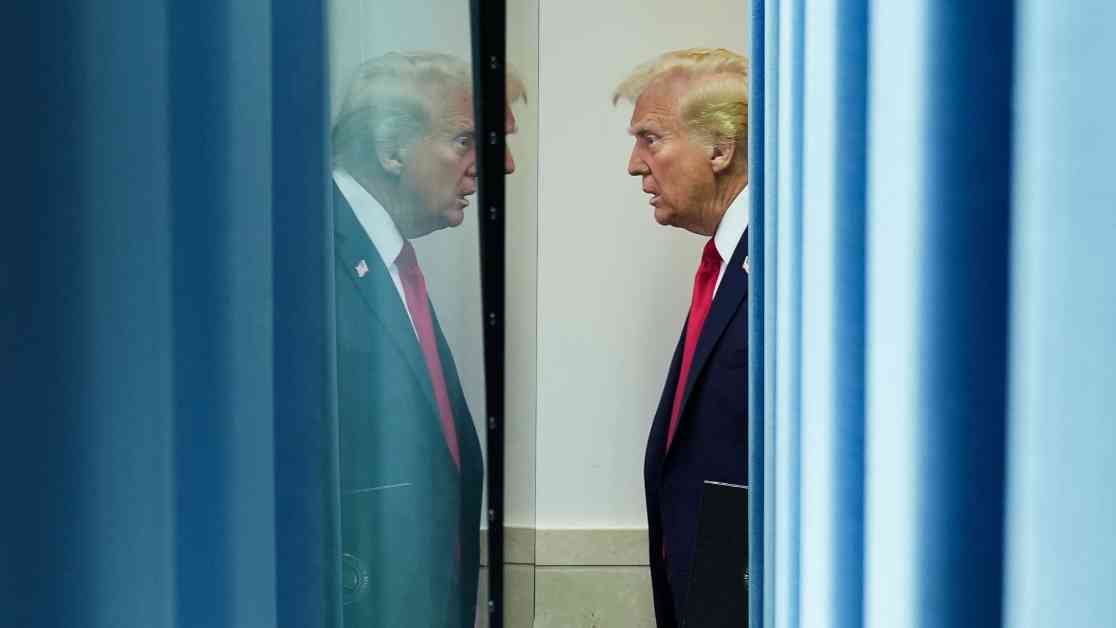President Donald Trump has set his sights on Medicare drug price negotiations. While he is not likely to dismantle the negotiation process entirely, he is expected to make significant changes that could impact the pharmaceutical industry, patients, and government spending. Matthew Kupferberg, a partner at Frier Levitt’s life sciences group, describes Trump’s approach as “nibbling around the edges of the law,” indicating a measured adjustment rather than a complete overhaul.
The implications of Trump’s decisions are vast, affecting the 68 million Medicare beneficiaries in the U.S. who rely on these negotiations for affordable medications. Companies like Novo Nordisk, Bristol Myers Squibb, Pfizer, and Merck are also closely monitoring the situation, as their drugs are subject to the negotiation process.
Uncertain Future of Drug Price Negotiations
There is a divide among lawmakers and health policy experts on which direction Trump might take. Some speculate that he could weaken the negotiations, favoring the pharmaceutical industry, while others believe he may seek to generate more savings for patients and the government, surpassing the efforts of his predecessor, Joe Biden.
One of Biden’s key initiatives, the Inflation Reduction Act, includes provisions for lowering prescription medicine costs for seniors and reducing Medicare spending by nearly $100 billion over the next decade. The pharmaceutical industry, however, vehemently opposes these negotiations, arguing that they impede profits and stifle innovation.
Trump’s administration has not provided detailed plans for addressing the negotiations, but it has hinted at a push for greater transparency in the process. Stakeholders await further clarity on how Trump plans to navigate this sensitive issue, knowing that any significant changes would require congressional support.
Potential Changes and Challenges Ahead
While Trump has emphasized the need for transparency in drug price negotiations, experts speculate on the specific modifications he might introduce. These changes could involve revising the criteria for drug selection, reinterpreting guidelines, or broadening the scope of stakeholders involved in the negotiations.
For instance, Trump may choose to redefine what constitutes a single drug for negotiation purposes, a move that could benefit drugmakers by potentially reducing the impact of lower prices. The real question lies in how aggressively Medicare will negotiate prices under Trump’s administration, with the final negotiated price currently capped to ensure reasonable cost containment.
In Congress, significant changes to the negotiation process face substantial hurdles due to the existing bipartisan support for curbing healthcare costs. While there have been discussions about legislative amendments, the path to achieving consensus remains uncertain. Efforts to address issues like the “pill penalty” for biologics versus small-molecule drugs highlight the complexities of healthcare reform.
Legal Battles and Future Outlook
The ongoing legal battles between pharmaceutical companies and the federal government add another layer of complexity to the situation. Despite several lawsuits challenging the constitutionality of the negotiation process, the courts have thus far upheld its legality. The Trump administration’s stance on defending these legal challenges will play a crucial role in shaping the future of Medicare drug price negotiations.
As the administration navigates this intricate landscape, the fate of millions of Medicare beneficiaries and the pharmaceutical industry hangs in the balance. The decisions made in the coming months will not only impact drug prices but also influence the broader healthcare landscape in the United States. Stay tuned for further developments as Trump’s administration charts a course through the intricate web of Medicare drug price negotiations.



















